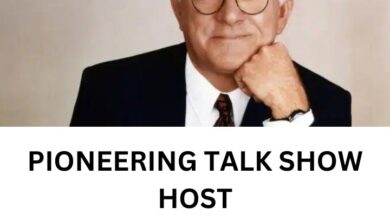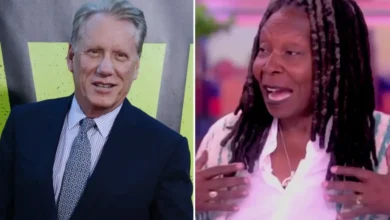Breaking: Sylvester Stallone Turns Down $100 Million Bud Light Deal, Declares, “I’m Not Rescuing Your Woke Brand”
Breaking news: In an unexpected move in the realm of celebrity endorsements, the legendary actor Sylvester Stallone has boldly turned down an astounding $100 million offer from Bud Light. This decision comes amid growing debates about the beer industry’s shift towards embracing progressive values and societal changes.
Stallone’s refusal highlights the evolving relationship between celebrities and brands, as well as the complexities surrounding “wokeness” in marketing. This article explores the reasons behind Stallone’s choice and its implications for the brewing giant and the wider advertising world.
Famous for his roles in the Rocky and Rambo series, Sylvester Stallone is no stranger to endorsements and brand partnerships, often commanding high fees. His name has become synonymous with action-packed blockbusters, enhancing his global stardom.
The $100 million offer from Bud Light underscores Stallone’s star power and the company’s commitment to securing a prominent figure for their campaigns. This substantial sum reflects Bud Light’s desire to connect with a broad and diverse consumer base.
In recent years, beer companies have increasingly aligned their marketing with progressive values, emphasizing inclusivity, diversity, and social responsibility. While this strategy has resonated with some consumers, it has also drawn criticism from those who see it as virtue signaling or a departure from core brand identities.
Stallone’s decision to reject Bud Light’s offer came with a striking statement: “I’m not saving your woke brand.” This powerful declaration highlights his stance against endorsing brands perceived as overly politicized or “woke.”
In today’s polarized social and political climate, “wokeness” in marketing has become a contentious issue. Some argue that brands should use their platforms to address societal issues, while others believe companies should focus on their products and avoid divisive debates.
Stallone’s rejection is more than a financial decision; it represents a stand against the perceived over-politicization of brands. His statement suggests he is unwilling to associate with a brand prioritizing a social or political agenda over its core identity.
This move also underscores the growing influence of celebrities in shaping public discourse. As public figures with significant followings, celebrities can sway public opinion and consumer behavior. Stallone’s refusal sends a message to both the brand and the public that not all celebrities are willing to support causes they do not fully endorse.
Bud Light’s offer to Stallone was a strategic move to enhance its image and reach a wider audience. However, Stallone’s rejection could impact the brand’s reputation. While some consumers may appreciate Bud Light’s alignment with progressive values, others may see the rejection as evidence that the brand has strayed from its traditional image.
This incident raises questions about the effectiveness of celebrity endorsements in today’s market. With consumers valuing authenticity and transparency, celebrities who decline deals based on personal values may resonate more with certain audiences.
Stallone’s decision and statement highlight the evolving dynamics between celebrities and brands. It emphasizes the importance of authenticity and alignment between a celebrity endorser and a brand’s values and messaging.
In a market flooded with advertisements and endorsements, authenticity has become crucial for consumer trust and loyalty. Brands must carefully craft their messaging and partnerships to connect with their target audience without alienating others.
Stallone’s rejection of the $100 million Bud Light offer and his declaration, “I’m not saving your woke brand,” mark a significant moment in celebrity endorsements and marketing. It reflects the ongoing debate about the role of brands in social and political issues.
As the advertising landscape evolves, brands must balance staying true to their identity with adapting to societal changes. Celebrity endorsements will continue to be powerful, but only when perceived as authentic and genuine by consumers. Stallone’s stance reminds us that in today’s market, authenticity and values are paramount.






